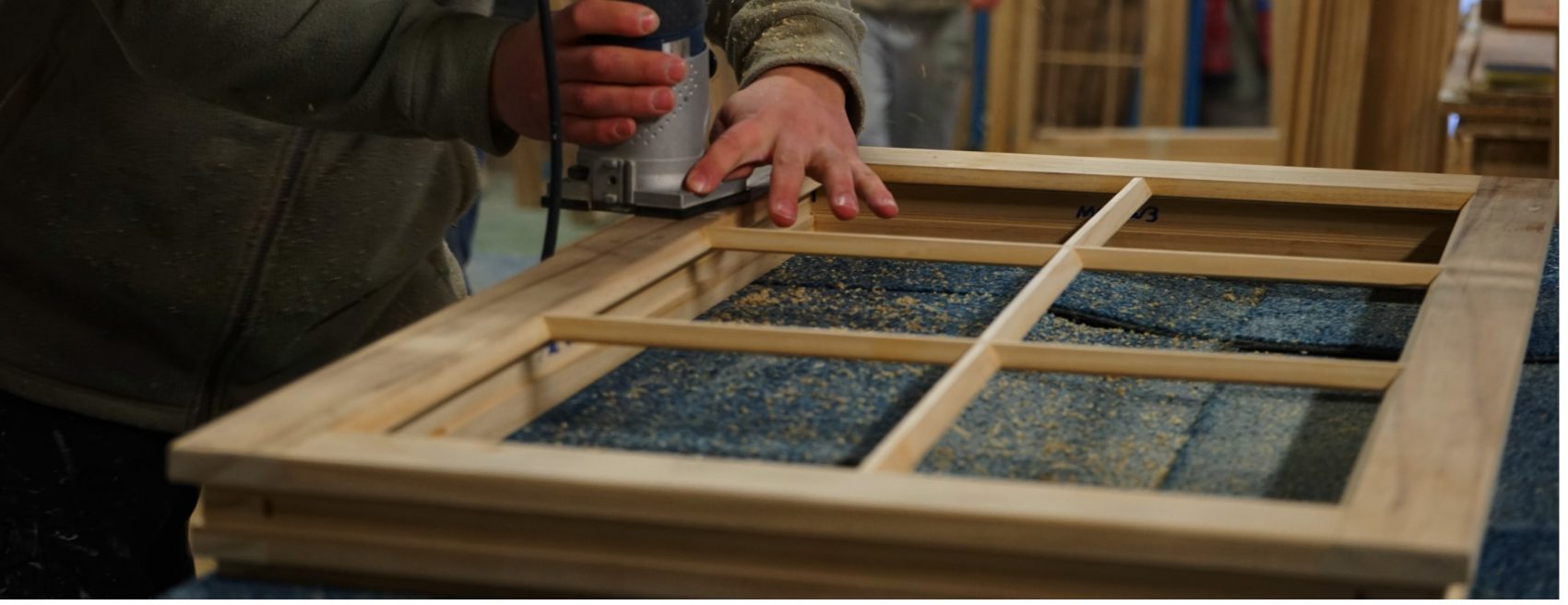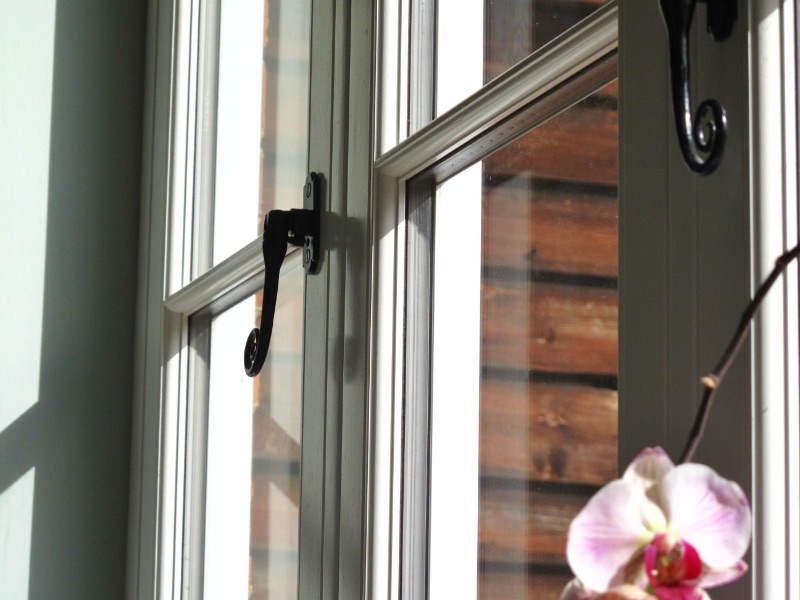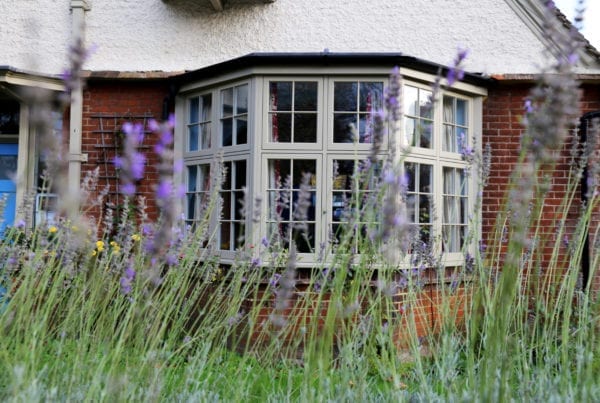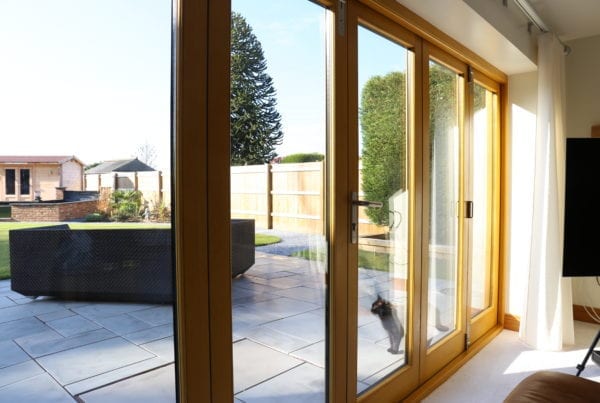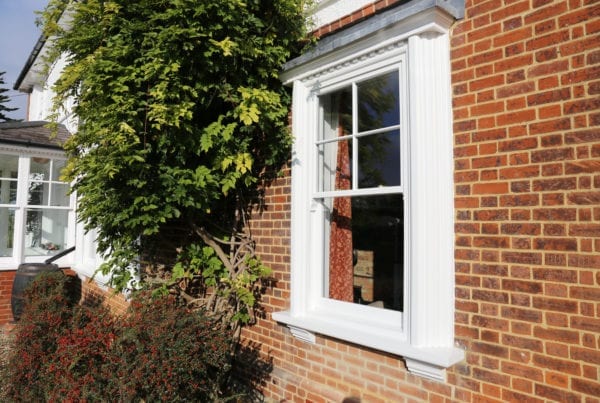Why do you need Accoya Windows?
Timber windows are a luxurious upgrade for your home. They’re beautiful, natural and especially great for listed period properties.
Although some people disregard them, thinking that they have a short lifespan and need a lot of on-going maintenance, this isn’t the case with Andrew Jaynes. Our timber windows have many benefits and our Accoya windows are a game-changer. Here’s why you need Accoya windows and why they’re the investment you need when upgrading to timber windows.
What is Accoya wood?
To clear one thing up, Accoya is not a type of tree. Accoya is the name given to radiata pine wood which has been modified by a unique process called acetylation that greatly enhances its natural properties. Accoya shouldn’t be confused with engineered timber or preservative-treated timber and is not a reconstituted wood lookalike.
Accoya wood and the environment
Wood is always going to be better for the environment when compared to uPVC or aluminium. However, Accoya wood is so sustainable, that it’s better than most other wood too. Despite great steps in replanting forests, many commercial hardwoods take 50-100 years to be suitable for harvesting and will have a life expectancy of only 30-40 years, making their sustainability questionable.
The radiata pine trees that are grown in the plantations for Accoya are harvested at 27 years and have a service life of 50-70 years. Accoya ultimately provides us with a much better turnover of resources and doesn’t harm the environment.
Furthermore, acetylation, the process which preserves the timber and enhances its properties, is entirely non-toxic. Other products and the processes they undergo to combat rot involve impregnating the wood with potent biocides that can end up in the wider ecosystem.
What makes Accoya so special?
Accoya wood is a breakthrough in timber technology. It’s virtually eliminated the problems associated with low-quality timber windows of the past.
Thanks to the unique modification process, Accoya benefits from a greatly increased resistance to rot and almost no moisture-related swelling or shrinking. These two benefits, proven independently and backed with a 50-year guarantee, make it the perfect choice for timber windows and doors.
What is the Accoya process?
The preservation process is known as acetylation and to explain it, we’re going to need to get a bit scientific…
In all unmodified wood, there are large numbers of molecule groups called ‘free hydroxyls’. These compounds not only absorb and release water, but are the primary food source for rot-causing organisms.
The movement of water also explains why wood swells and shrinks during different times of the year.
Among the wood particles are also a smaller quantity of molecule groups called acetyls. These don’t swell and rot-causing organisms can’t digest them.
Acetylation changes the susceptible free hydroxyls to inert acetyls, effectively making the wood indigestible to fungi and organisms. Also, it no longer swells when wet. No biocides are used for this process, meaning that it’s non-toxic to the environment.
Are there more benefits of Accoya wood?
Additional benefits of Accoya wood are that there’s no compromise to the wood’s original properties after treatment, like its versatility and overall attractiveness. You can paint and stain Accoya any colour you want, and paint finishes last much longer because they do not need to cope with the timber shrinking and swelling.
Thermal insulation is better than most other timbers, meaning your home stays warmer.
Summary: why do we make Accoya windows?
At the heart of our company is the drive to evolve and innovate and Accoya wood fits perfectly with these ideals. It offers a responsible, sustainable solution, and contributes to the long-term peace of mind in knowing that Andrew Jaynes windows are among the best on the market.
Contact Andrew Jaynes
Looking to upgrade your home’s windows and doors? Get in touch for a free consultation and advice on how Accoya windows are the investment you need.
Want to know more? Watch this video.


